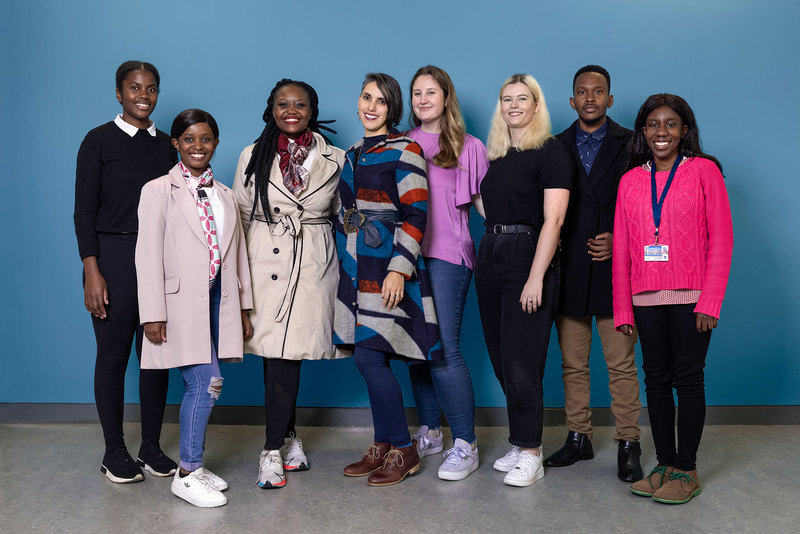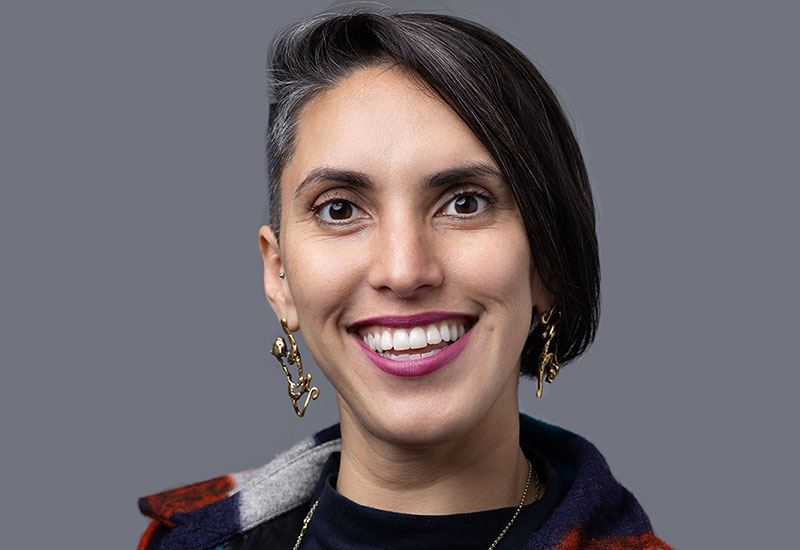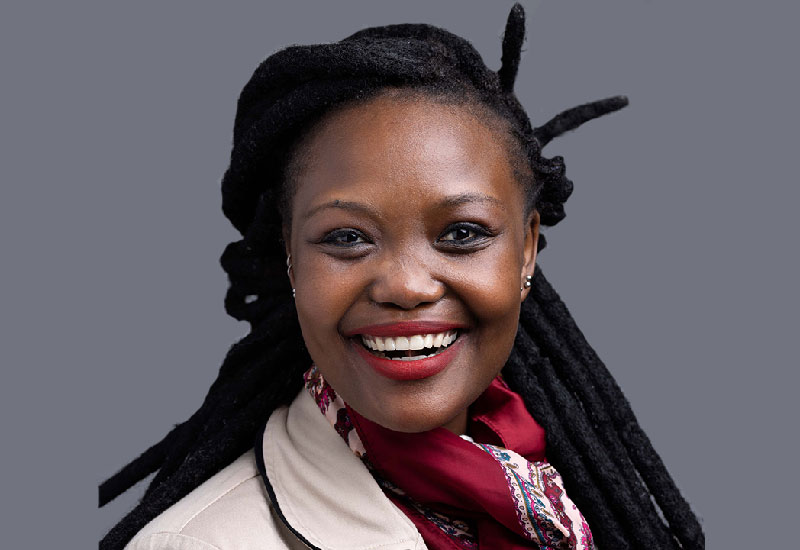Young researchers crowned in FameLab science communication competition
24 June 2022 | Story Nobhongo Gxolo. Photos Migal Vanas. Read time 8 min.
The University of Cape Town’s (UCT) Institute of Infectious Disease and Molecular Medicine (IDM) Education Working Group, in partnership with Jive Media Africa, hosted a hybrid FameLab heat in May 2022. The two-part session was presented online and at the IDM’s Wolfson Pavilion Lecture Theatre.
Eighteen emerging researchers between the ages of 20 and 35 based at the IDM, presented initial talks at the start of the process. Eleven were shortlisted and invited to take part on the final day of this science communications skills workshop. The young researchers spanned disciplines across medical virology, immunology, chemical and systems biology, and others.
The training workshops were designed to develop internal skills and capacity in preparation for the various upcoming competition heats. In each heat participants present a three-minute talk to a live and online audience, including the judges.
Together with the audience, four judges sat in the morning session – the first leg of presentations on the day. Judges included Dr Anele Gela, a research officer at the South African Tuberculosis Vaccine Initiative (SATVI); Dr Rubina Bunjun, an infectious disease immunologist; Dr Zenda Woodman, a senior lecturer in the Division of Medical Biochemistry; and Dr Sabelo Hadebe, a senior lecturer in the Division of Immunology – all at UCT’s Faculty of Health Sciences.
The final round
Six participants made it into the final round which was hosted that same afternoon. In this session, two judges replaced two from the morning. They were Dr Anastasia Koch, the co-director of Eh!woza, a social impact non-profit organisation incubated at the IDM; and Professor Komala Pillay, the head of the Division of Anatomical Pathology.
Addressing attendees in her opening address, IDM member and Associate Professor Jo-Ann Passmore at the Division of Medical Virology acknowledged Scientific American – referencing a blog post highlighting the importance of science communication as being a critical part of daily living.
“I believe it’s our responsibility as scientists and mentors to build this capacity and nurture it in scientists.”
“Scientists have to give talks, we have to write papers, communicate to a wide variety of audiences – and educate others. When scientists [can] do this – communicate more effectively to broader non-scientists, it builds support for [the] sciences and encourages more informed decision-making at all levels. From government, to communities, to the individual,” said Associate Professor Passmore.
“As a member of the IDM Education Committee I believe it’s our responsibility as scientists and mentors to build this capacity and nurture it in scientists. I’m very proud of those within the institute who put their hands up this morning and showed up for the first IDM competition.”
The winner will proceed to a masterclass and represent the IDM in the national semi-finals of the South African leg in September 2022. Those successful in this round will go through to an international final towards the end of the year. The international FameLab competition started in the United Kingdom in 2005 and has operated in over 30 countries.
2022 IDM Famelab competition winners

Tuberculosis, caused by Mycobacterium Tuberculosis, is commonly known as a disease of the lungs. In its most severe form, it can progress to the central nervous system (CNS) causing high fatality rates or long-term neurological damage. Astrocytes are resident brain cells that support surrounding cells, however ongoing research has shown that they are also involved in the body’s defence against infectious agents.
Through her research project, Investigating astrocyte immune modulation during central nervous system TB (CNS-TB), Geyer-Benjamin aims to investigate how astrocytes regulate immune responses and whether they offer protection during CNS-TB disease.
“Advancing our understanding of astrocyte activity and the mechanisms driving their responses during CNS-TB will assist us in the development of effective intervention strategies for enhanced treatment and essentially improve disease outcome in patients,” said Geyer-Benjamin.
She lauded the importance of science communication and engagement saying that the Famelab experience provides an opportunity to engage with communities and stimulate interest and enthusiasm for medical science.
“It’s essential for scientific knowledge to be shared outside of academia, to inform and contribute to the public’s understanding of current research and how it impacts healthcare. [This can] also foster collaboration among researchers and diverse social groups, leading to innovation and developments in policy, advocacy, education, and outreach.”

HIV research and deepening the understanding around how it infects and transmits itself, has largely been studied through the female biology lens. How HIV infects the penis, and how HIV infects through the penis, is one of the least studied aspects of HIV.
Referring to her project, “Characterising the immune environment in the male penis and assessing how the presence or absence of asymptomatic sexually transmitted infections affects it”, Rametse described it as an exercise in switching perspectives in HIV transmissions research.
“We are currently characterising the immune environment in the male penis through assessing what biological factors are altered following circumcision. Furthermore, the effect of asymptomatic sexually transmitted infections on this penile immune environment is explored.”
This work aims to provide a more in-depth understanding of how the basic immune biology within different sites in the penis is set up, this includes the foreskin and glans. This will offer a steppingstone towards establishing alternative HIV preventative strategies in males. This could include the development of gel formulations targeting specific proteins or cells in the uncircumcised penis.
Grateful for the FameLab experience over the prize recognition, Rametse said: “The workshops and the multiple competition rounds with internal feedback really contributed towards my mission to build my science communication craft. This, I believe, is pivotal to ensure that I can communicate my research and its findings to various audiences.”
 This work is licensed under a Creative Commons Attribution-NoDerivatives 4.0 International License.
This work is licensed under a Creative Commons Attribution-NoDerivatives 4.0 International License.
Please view the republishing articles page for more information.









.jpg)
